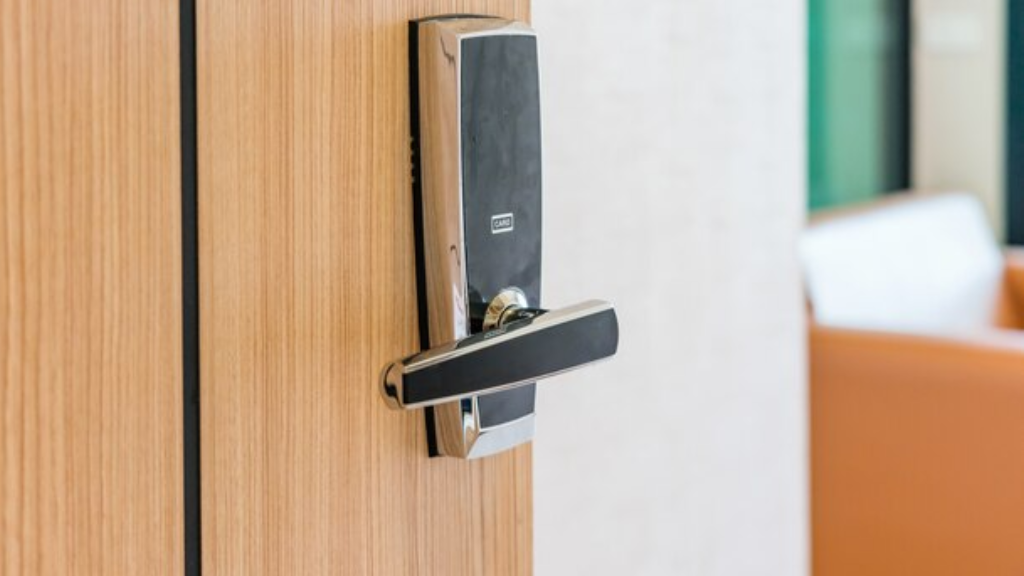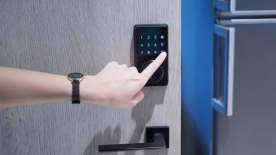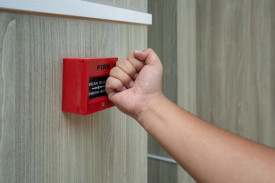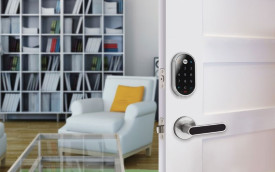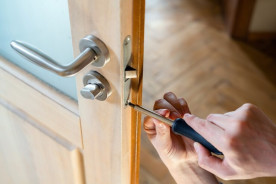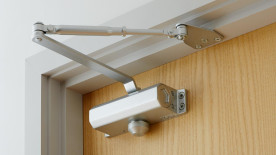Environmental effects, security, life safety, emergency escape, and other factors should be considered while choosing the right door and door hardware. The proper door and hardware must be fitted for every purpose, and facility managers must ensure this.
An evaluation of requirements is necessary, which must account for the installation site and anticipated traffic levels of the door. For instance, main entrance commercial door hardware will face more foot traffic than doors mostly used as emergency escapes.
Furthermore, compared to doors in ordinary business buildings, those in educational facilities like middle and high schools will see far more use and abuse. While the incorrect type could save money upfront, it will cost more to maintain in the long run.
Points To Consider While Choosing Commercial Door Hardware
When choosing commercial door hardware, it's important to consider how it will be used. Using hardware that is too small in heavily trafficked areas or installing a hefty door is a typical error. For both, you'll need a sturdy pair of fasteners, usually of the Grade 1 variety.
Undersized hardware is more likely to develop maintenance issues over time, including misaligned doors and problematic operation, which can lead to security breaches. The effects on the natural world also need to be considered.
Coronary-resistant hardware is essential for doors to endure more than a few years in environments with constant or high humidity. When hardware, such as hinges, corrodes, it can make doors stick and hard to operate, compromising security or making it impossible to exit.
The requirements analysis should consider all aspects influencing the door's performance in that setting. Life safety, emergency escape, security, and loss prevention are common examples of such factors.
Most of them will work in most cases, but not all will be the same. The degree of support for various functions is determined by the type of hardware used. Let's examine the health of your commercial door hardware in detail.
Examining The Door And Its Hardware’s Health
Installation of the best possible door and hardware does not eliminate the need for regular maintenance. The amount of use the door receives, the conditions in which it functions, and the required performance level dictate the duties that need to be performed and how often they have to be performed.
You should check every door at least twice a year. More regular examinations will be necessary for doors that are prone to high use or abuse. Our goal in doing these checks is to find any faults that could impede the door's functionality and fix them before they become more costly or cause additional problems.
Check the door's paint, frame, and any hardware with it first. Make sure that every part hasn't sustained any physical harm. Does the damage look bad, or does it make the door unusable? Be sure to check any metal parts for surface rust and wood doors and frames for rot. Is the corrosion spreading throughout the parts, or is it just on the outside?
Take a look at how the door opens and closes next. Can you open and close the door without binding it? Is the latch and closure complete? Find out how wide the opening is between the door and the frame. How stable is it, or does it fluctuate? The door may droop due to loose hinges or an uneven frame if the gap is not uniform.
Tightening or replacing loose hinge screws is one thing, but fixing a frame that isn't square will take more work. Both of these problems will worsen over time, leading to more binding. When it comes to doors, broken or missing weatherstripping is a regular complaint.
Normal use wears down weatherstripping, and doors that aren't properly aligned might damage it. Verify that all weatherstripping is securely fastened and free of damage. To reduce air leakage between the door, frame, and sill plate, it is necessary to replace any damaged or missing pieces.
Check the commercial door closer and all of the other door's hardware. Make that the door closer is set so that it closes and latches smoothly without banging. Verify that the strike plate is securely fastened and free of damage.
Hardware Requirements For Commercial Use
The everyday use of residential and commercial hardware is distinct, necessitating distinct standards and functionalities. To ensure uniform performance in the hardware and construction industries, impartial reviews consider a product's dependability and longevity.
Standards for commercial door hardware are established through testing by organizations such as Underwriters Laboratories (UL), the American National Standards Institute (ANSI), and the Builders Hardware Manufacturers Association (BHMA).
These tests determine factors like the standard for impact resistance and the number of typical uses before a door latch breaks. All door hardware for commercial spaces must be of the highest quality and have UL or ANSI/BHMA certifications.
When you make your purchase, you'll appreciate the clear presentation of these grades. The third-grade commercial door lock type satisfies the most fundamental requirements for safety and security—an excellent, high-quality item.
The business door lock type is certified as Grade 2 according to the BHMA criteria, which indicates that it fulfills the intermediate degree of security. The highest level of protection and longevity, grade 1.
According to the BHMA requirements, these commercial locks provide the highest quality product. It is not always easy to see the grades on product details. You may rest assured that you purchase the correct goods for your company's needs if you see an ANSI or BHMA number.
Types of Commercial Locks
Lever Locks:
Two circular holes are bored into the door to install a bored cylindrical lever lock, a type of lockset. No matter the application's rigor, a cylindrical lever lockset meets the needs. These locksets are available in various grades, styles, features, and finishes.
Mortise Locks:
To install a mortise lock, carve a recess into the door's perimeter and insert the lock case. This lock type is stronger and more long-lasting than cylindrical locks but is also more expensive. Mortise locks are the most durable and versatile option, making them ideal for heavy traffic.
Deadbolt Locks:
When installed with an existing cylindrical lockset, deadbolt locks offer additional security against break-ins. A door pull and a deadbolt are two options for locking a door. Any door that has a conventional bore hole can usually accommodate a lock.
Keyless Locks:
Electronic or keypad locks are a great choice for doors that don't require keys but want a secure solution. Be that as it may, cylinders or key override mechanisms are standard on keypad locks. Typically, these locks necessitate particular door preparations.
Conclusion
Choosing the best industrial door lock and other commercial door hardware from the numerous options available could appear daunting. Learn about the many kinds of locks, and other hardware like door closers, hinges, etc. and how to choose the one that's right for your needs with this handy guide by Park Avenue Locks.

